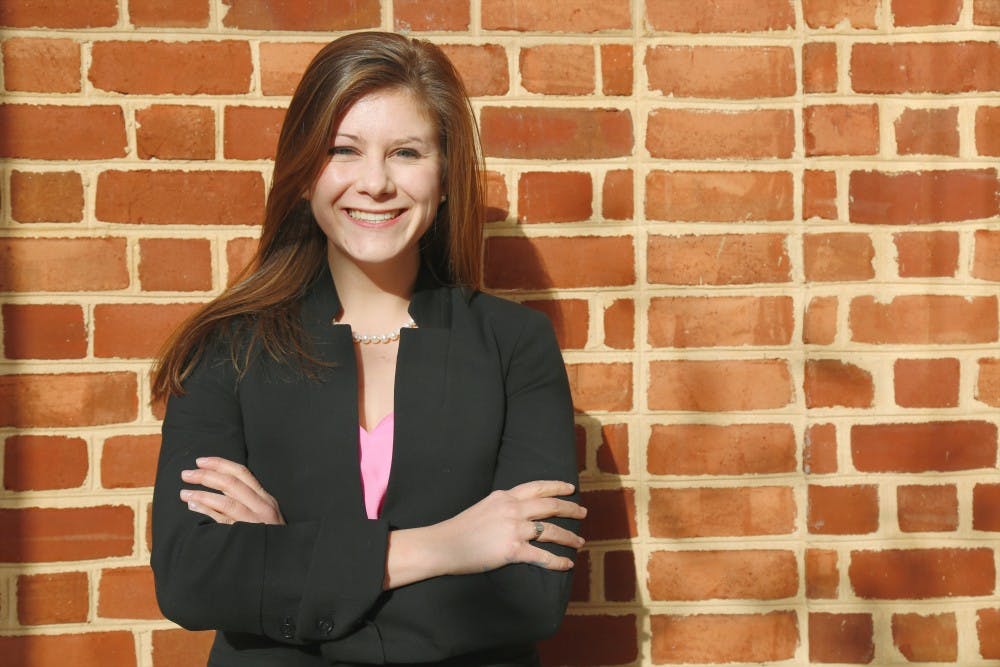As we approach the six-month marker of the neo-Nazi terrorist attacks of Aug. 11 and 12, we have an opportunity to step back and evaluate how our community has changed since that violent weekend, for better and for worse. As individuals, we must summon the courage it takes to honestly confront ourselves about if and how our thoughts and actions have shifted. As a student body, we must hold our representatives accountable for the goals they have been tasked with addressing. As a University, we must center the truth-seeking mission of this institution in our work to build a community that lives by the values that our press releases and website espouses. To effectively realize this mission, I contend that a select category of speech presently protected by a persuasive liberty paradigm fails to further the truth seeking charge of our scholars and institution of higher education.
Public universities bristle at the very mention of campus speech regulation, fearful of sensational press headlines, ACLU-sponsored litigation and watchdog lobbies that will accuse them of constitutional violations and an affront on the value of liberty. However, Noah Feldman, a professor of constitutional and international law at Harvard University, advances an understanding of the relationship between a public square and a public university that illuminates a path forward through this thorny territory. In a piece he published in the Chicago Tribune in August 2017, titled “Universities can do more to curb hateful speech,” Feldman contends that in order for publics “to function as universities, they need to create an environment of communal commitment to exploring the truth...it does not include threats or harassment. And it does not allow for gross violations of civility.” In Feldman’s view, public universities can and should define their property as a uniquely tailored public square that supports their established values and norms. Universities must continue to offer public forums for robust, messy debate — nevertheless, that commitment does not obligate them to entertain all public provocations, ipso facto.
Moreover, our University and our nation must take violations of civility, such as incidents of hate speech, more seriously. If we only consider the offense of hate speech to constitute a mere message of subordination, we are limited in our ability to engender equal respect for all people under the law. By centering concern around physical harm, violence and disrespect, scholars, legislators and jurors alike have relegated hate speech to a regrettable but unavoidable cost that some individuals must pay for the paramount societal value of freedom. I contend that incidents of hate speech do constitute substantial aggression. Affronts to a person and/or a community’s societal status violate one’s dignity and impede one’s ability to live a free and happy life.
Such violations are dramatically increasing in number, too, according to Emma Kerr’s citation of a new study released by the Anti-Defamation League on Feb. 1. In her article, titled “White Supremacists Are Targeting College Campuses Like Never Before,” she cites that “white-supremacist propaganda at colleges increased by 258 percent from the fall of 2016 to the fall of 2017, affecting 216 campuses across the nation.” Alongside this deeply troubling trend, we are reaching what Pearce Godwin, columnist and CEO of Listen First Project, calls a crisis in civility. In his piece in The Hill titled “When it comes to politics, listen first in 2018,” Godwin reveals that not only do “75 percent of Americans now believe the lack of civility has reached a crisis level,” but that “56 percent expect civility to get worse in the next few years,” according to Civility in America’s latest survey. What can we do as students to engage with one another in productive and dignified ways as these trends threaten to tear our community apart?
I am advocating for a more thoughtful and serious consideration of the harm that hate speech causes to our University’s academic mission and to our democracy more broadly. As students, we must not only fight repugnant speech with louder speech, but we must enforce relationships of mutual respect that ground constructive debate as well as rally against speech that violates the norms of our community. As students, we may not possess the tools to amend the parameters that define protected political speech. Perhaps a solution to these salient concerns over speech don’t lie with more regulations — maybe our answer stems from a renewed commitment to what dignified treatment of difference looks like in our pluralistic society. If that’s the case, what better place to tend to such a commitment than the nurturing space of a university, where we’re tied together by a pursuit of knowledge that will help us create a more equitable and just world for everyone.
Sarah Kenny is a fourth-year College student and serves as Student Council president.







